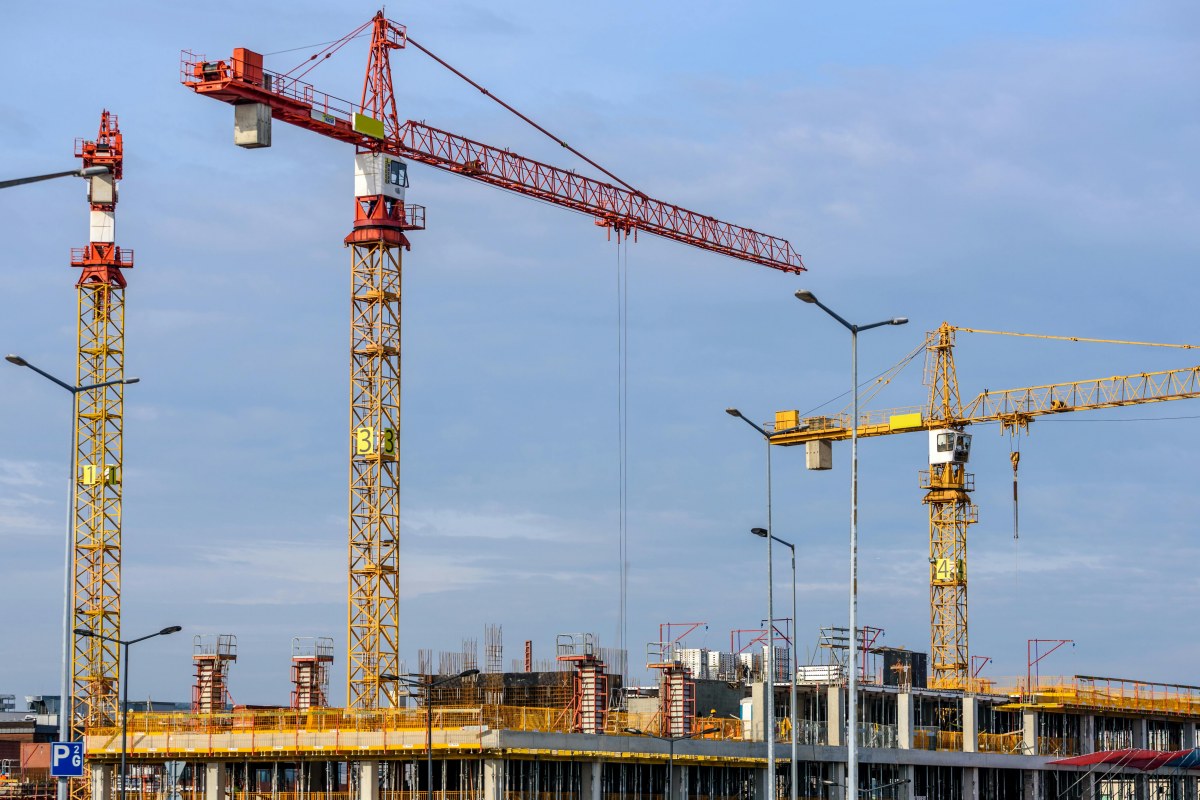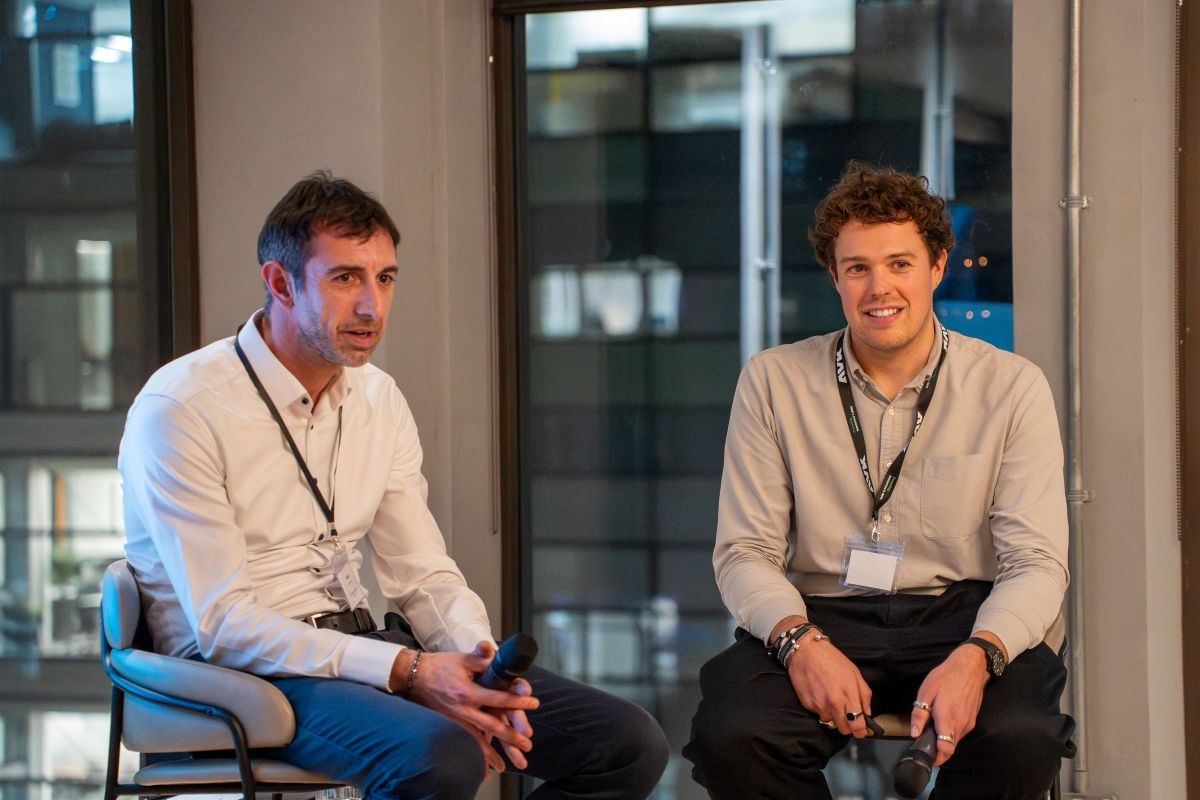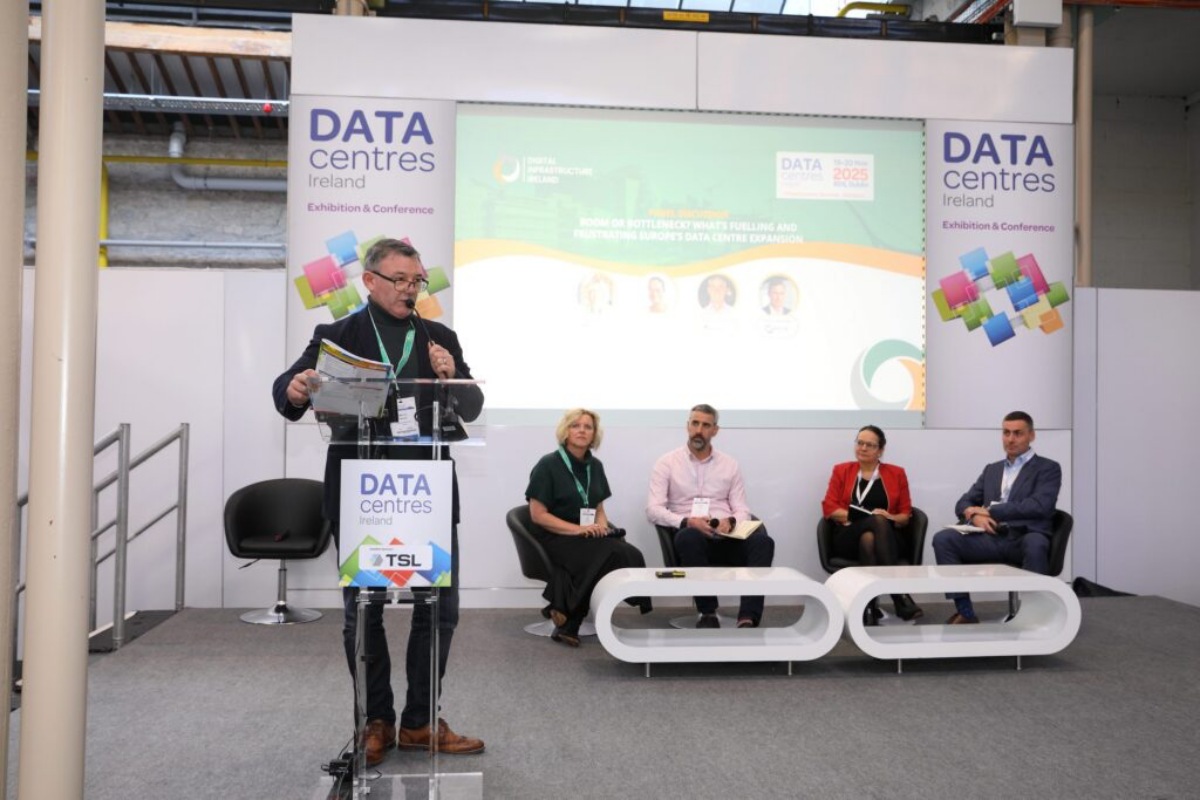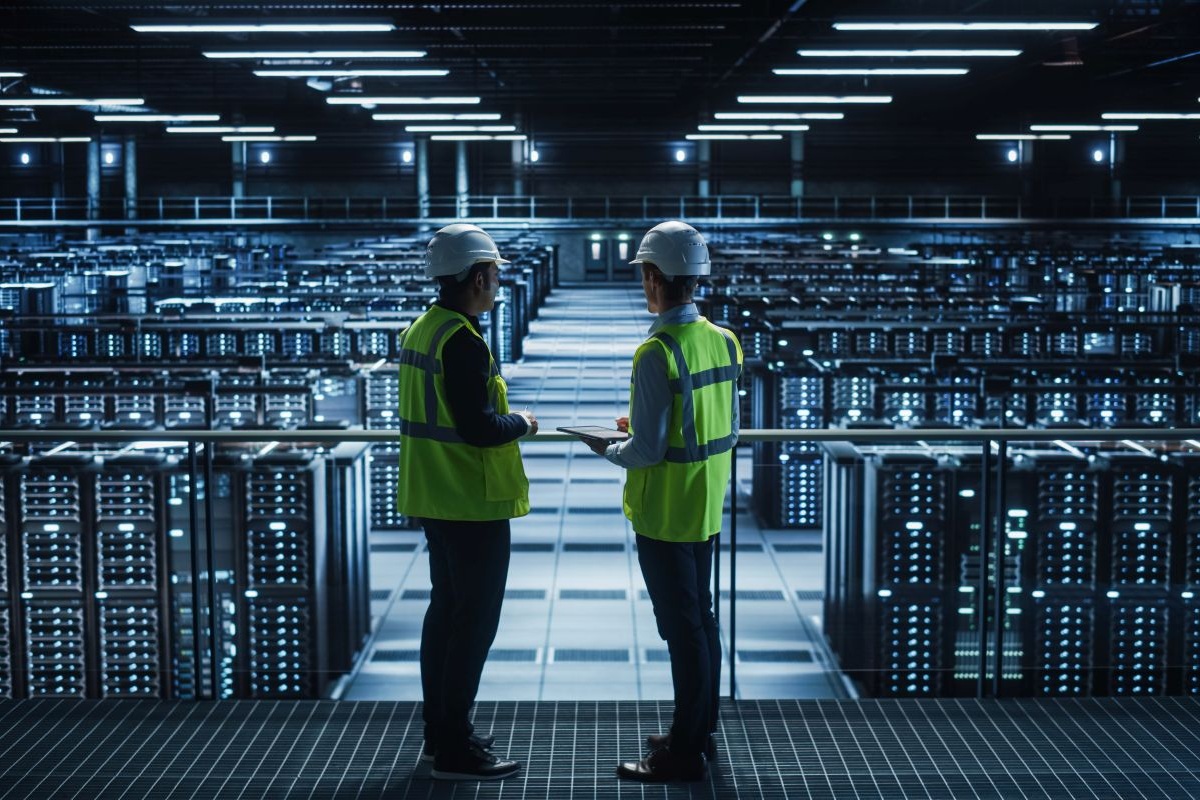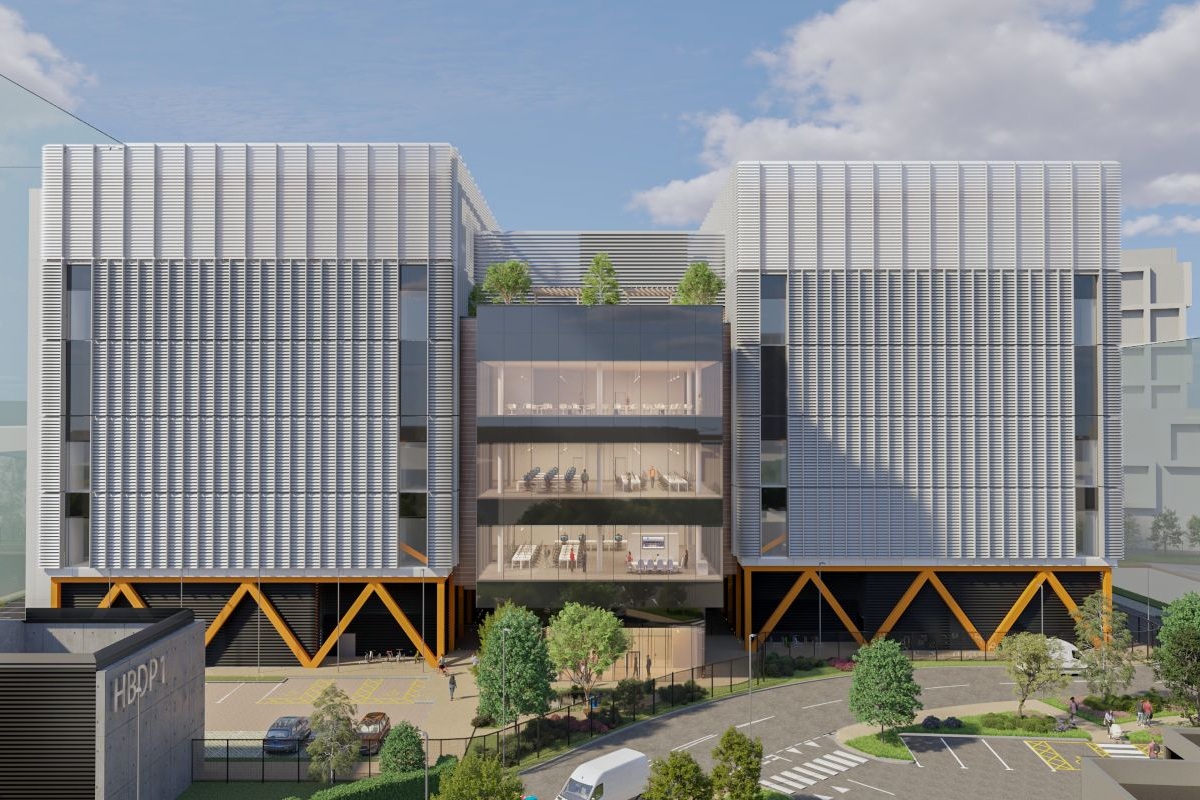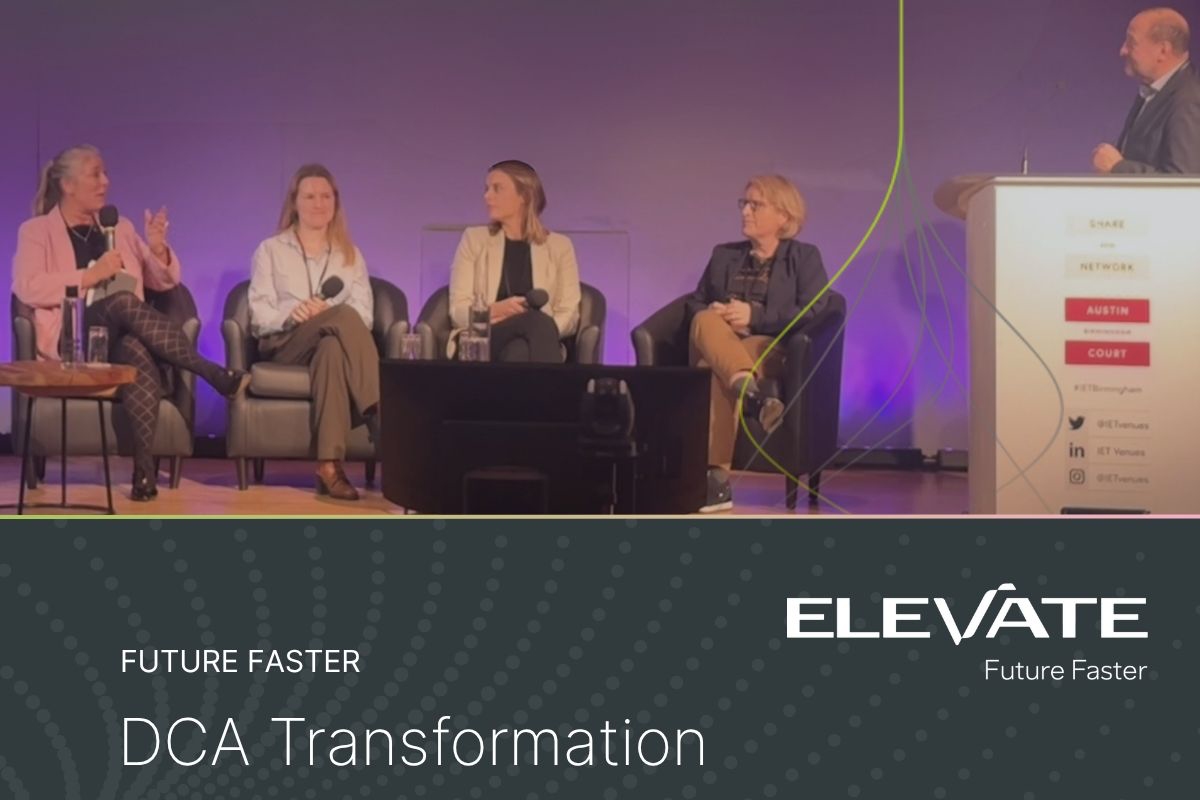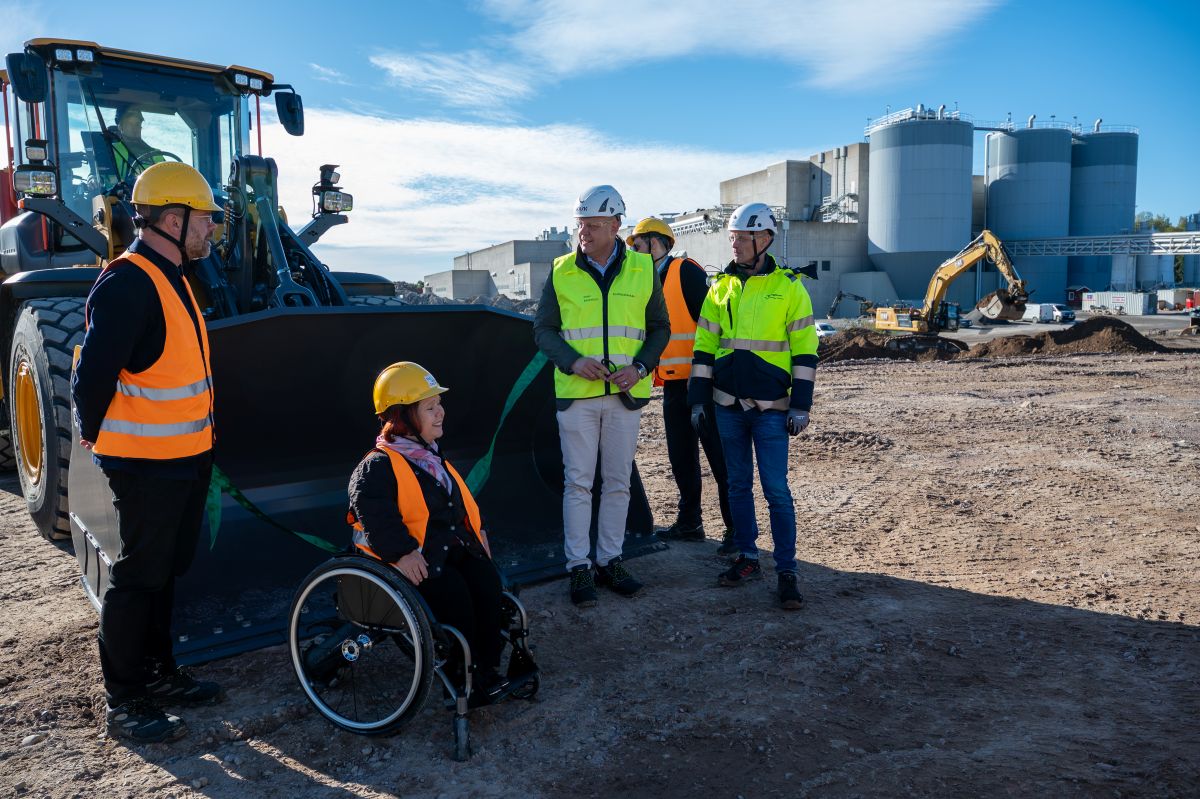Data Centres
Data Centre Build News & Insights
Data Centre Projects: Infrastructure Builds, Innovations & Updates
Data Centres
De-risking data centre construction
In this article for DCNN, Straightline Consulting’s Craig Eadie discusses how the rapid rise of hyperscale and AI-driven data centres is amplifying project complexity and risk, as well as why comprehensive commissioning from day one is now critical.
Craig highlights how long-lead equipment delays, tightening grid constraints, and beginning commissioning before quality control can derail builds, stressing the need for commissioning teams to actively manage supply chains, verify equipment readiness, and address power availability early:
How can comprehensive commissioning de-risk data centre construction?
Data centres are the backbone of the global economy. As more businesses and governments depend on digital infrastructure, demand for hyperscale and megascale facilities is surging. With that growth comes greater risk. Project timelines are tighter, systems more complex, and the cost of failure has never been higher.
From small enterprise facilities to multi-megawatt hyperscale builds, it’s critical that commissioning teams control and mitigate risk throughout the process. It’s rarely one big crisis that causes a data centre project to fail. More often, it’s a chain of small missteps - from quality control and documentation to equipment delivery or communication - that compound into disaster.
Taking a comprehensive approach to commissioning from day one to handover can significantly de-risk the process.
Managing upwards (in the supply chain)
It wasn’t long ago that a 600 kW project was considered large. Now, the industry routinely delivers facilities of 25, 40, or even 60 MW. Both sites and the delivery process are getting more complex as well, with advanced systems, increasing digitisation, and external pressures on manufacturers and their supply chains. However, the core challenges remain the same; it’s just the consequences that have become far more serious.
Long-lead equipment like generators or switchgear can have wait times of 35 to 50 weeks. Clients often procure equipment a year in advance, but that doesn’t guarantee it will arrive on time. There’s no use expecting delivery on 1 July if the manufacturer is still waiting on critical components. Commissioning teams can de-risk this process by actively managing the equipment supply chain. Factory visits to check part inventories and verify assembly schedules can ensure that if a generator is going to be late, everyone knows early enough to re-sequence commissioning activities and keep the project moving. The critical path may shift, but the project doesn’t grind to a halt.
Managing the supply chain on behalf of the customer is an increasingly important part of commissioning complex, high-stakes facilities like data centres. Luckily, a lot of companies are realising that spending a little up front is better than paying a few hundred thousand dollars every week when the project is late.
Securing power
More and more clients are facing grid limitations. As AI applications grow, so too do power demands, and the utilities often can’t keep pace. A data centre without power is just an expensive warehouse, which is why some clients are turning to behind-the-meter solutions like near-site wind farms or rooftop solar to secure their timelines, while bigger players are negotiating preferential rates and access with utilities. This approach is meeting with increasingly stern regulatory pushback in a lot of markets, however.
You can have a perfectly coordinated build, but if the grid can’t deliver power on time, it’s game over. Power availability needs to be considered as early as possible in the process and sometimes you have to get creative about solving these challenges.
Commissioning without quality control is just firefighting
One of the most common mistakes we see is starting commissioning before quality control is complete. This turns commissioning into a fault-finding exercise instead of a validation process. The intended role of commissioning is to confirm that systems have been installed correctly and work as designed. If things aren’t ready, commissioning becomes firefighting, and that’s where schedules slip.
Data centres are not forgiving environments. You can’t simply shut down a hyperscale AI facility to fix an oversight after it’s gone live. There is no “more or less right” in commissioning. It’s either right or it isn’t.
Technology-driven transparency and communication
One of the biggest improvements we’ve seen in recent years is through better project visibility. By using cutting edge platforms like Facility Grid, commissioning teams have a complete cradle-to-grave record of every asset in a facility. If a switchboard is built in a factory in Germany and installed in a project in France, it’s tracked from manufacturing to installation. Every test, every piece of documentation is uploaded. If a server gets plugged into a switchboard, the platform knows who did it, when they did it, what comments were made, with a photographic backup of every step.
It means that commissioning, construction, and design teams can collaborate across disciplines with full transparency. Tags and process gates ensure that no stage is marked complete until all required documentation and quality checks are in place.
That traceability removes ambiguity. It helps keep everyone accountable and on the same page, even on the most complex projects when adjustments are an essential part of reducing the risk of delays and disruption.
The biggest differences between a project that fails and one that succeeds are communication and clear organisational strategies. Precise processes, reliable documentation, early engagement, and constant communication - everyone on the project team needs to be pulling in the same direction, whether they’re a part of the design, construction, or commissioning and handover processes.
This isn’t just about checking boxes and handing over a building; commissioning is about de-risking the whole process so that you can deliver a complex, interconnected, multi-million pound facility that works, that’s safe, and that will stay operational long after servers spin up and the clients move in. In the past, the commissioning agent was typically seen as a necessary evil. Now, in the data centre sector and other high-stakes, mission critical industries, commissioning is a huge mitigator of risk and an enabler of success.
Joe Peck - 8 December 2025
Data Centre Business News and Industry Trends
Data Centres
AVK and Rolls-Royce form new capacity agreement
AVK, a supplier of innovative power solutions for data centres in Europe, and the Rolls-Royce division Power Systems, an expert in power solutions, have announced a new multi-year capacity framework as an addition to their established System Integrator Agreement.
The new partnership capacity framework cements a closer collaboration between the two companies, with a focus on increasing industrial capacity for genset orders whilst accelerating joint innovation across the data centre and critical power markets. It comes 12 months after AVK announced a record-breaking year of sales and collaboration between the two companies, with 2024 seeing AVK deliver its 500 mtu generator from Rolls-Royce. The HVO-ready generators were primarily sold into the data centre sector.
Under the new Memorandum of Understanding (MoU) agreed between the parties, their relationship moves considerably beyond 2024’s achievements to become a strategically integrated, longer‑term alliance. The new framework formalises a five‑year capacity partnership between Rolls‑Royce Power Solutions and AVK, with Rolls-Royce increasing supply and AVK committing to order volume.
A parallel six-year master framework designates AVK as the exclusive System Integrator for mtu generator sets across the UK and Ireland until 2031. The agreement defines commercial terms, pricing, delivery lead times, compliance standards and anti‑bribery obligations, positioning AVK as Rolls‑Royce’s strategic partner for turnkey, mission‑critical energy solutions.
As a result, there will be stronger alignment across production planning, product roadmaps and go‑to‑market activity, accelerating innovation and boosting the resilience of supply chains. The new framework with its increased capacity will foster end‑to‑end certainty for customers that specify mtu solutions for decarbonisation and resilience programmes.
Finally, the new agreement supports AVK’s ambition to serve the expected surge in data‑centre demand while reinforcing Rolls‑Royce’s commitment to scalable, power platforms.
“We are pleased to have signed a Capacity Agreement and extended our System Integrator contract with AVK,” says Vittorio Pierangeli, Senior VP Power Generation at Rolls Royce. This agreement reflects the commitment from both parties to continue our collaboration and support the rapidly growing European Data Centre market. With this in place, we look forward to working closely together in the coming years.
“This is an exciting time for our industry, where innovation and collaboration are more important than ever. Technology shifts are accelerating, and the acceptance of alternative fuels is just one example of how the market is evolving. We are investing extensively to introduce our gas product range into this space, complementing our established diesel portfolio. With both diesel and gas solutions, as well as energy storage options, Rolls-Royce is uniquely positioned to meet future demands. Partners such as AVK will also be well placed to capitalise on these opportunities. We look forward to strengthening our partnership as the market continues to develop."
Ben Pritchard, CEO of AVK, is delighted with the new framework deal, which he believes is testament to the long‑standing partnership the company has with Rolls-Royce. He comments, “This is not simply about growth. It’s about a much stronger, more enduring collaboration. With Rolls-Royce one of our valued technology partners, we have both achieved impressive growth individually as well as in our work together. Driving growth in innovative solutions on an international scale, our joint projects can be seen succeeding across Europe. We’re excited for this to develop even further.”
Ben continues, “Our relationship with Rolls-Royce has evolved in an exciting way and this new multi‑year capacity agreement secures access to equipment across the UK and Europe just as the data centre market is about to boom. The new framework puts us in a position where we have the industrial capacity to deliver technology in line with the growing demands of the market. This makes AVK a pivotal part of the coming energy transition. AVK and Rolls‑Royce are positioned to deliver more than equipment – together we will provide integrated, future‑proofed power solutions that combine industrial scale, sustainability and the delivery certainty required by today’s mission‑critical operators.”
For more from AVK, click here.
Simon Rowley - 4 December 2025
Data Centres
Events
News
A round-up of DataCentres Ireland 2025
DataCentres Ireland was again heralded as a success by the exhibitors, alongside many of the visitors and speakers, as it delivered more attendees, more content, and more delegates than ever before.
The total attendance was up 23.0% YoY over the two days of the event, delivering to over 3000 people interested in the sector.
Louisa Cilenti, Chief Legal Officer at Clear Decisions, notes, “DataCentres Ireland was an outstanding forum to get underneath the strategic issues shaping Ireland’s future as a global data centre hub.
"From Minister Dooley’s address to the highly practical breakout sessions, the day struck the perfect balance between policy depth and real-world innovation.
"The relaxed venue made meaningful networking effortless and, as a startup, Clear Decisions really valued the genuine peer environment. A fantastic event that brings the whole ecosystem into one conversation.”
Day 1 was busy from the outset. Starting with a keynote address from Minister of State Timmy Dooley TD detailing the Irish Government recognising the essential nature of data centres in modern society and its wish to work with the data centre community both for the leveraging of AI as well as recognising the impact of data centres in attracting foreign direct investment.
Day 1 saw a massive 34.7% growth on attendance YoY, with exhibitors and attendees commenting on the buzz in the exhibition hall.
Day 2 had a slower start, though footfall built with a good feeling in the hall. The event delivered over 600 new individuals for exhibitors to network and do business with, which were similar numbers to those achieved on Day 2 in 2024.
This was the largest visitor and total attendance in the event's 15-year history, delivering over 3000 attendees across the two days.
The number of exhibitors also grew, with the exhibition featuring over 140 individual stands and showcasing more than 180 companies and thousands of brands.
An event of opportunities
Exhibitors and attendees acknowledged that DataCentres Ireland provided a professional business environment where people were able to network with colleagues; see the latest in products, services, technology, and equipment; and listen to industry leaders and experts discussing the latest issues, approaches, and ideas affecting data centres and critical environments.
Paul Flanagan, EMEA Regional Director West, Camfil, comments, “As usual, a well-organised event by Stepex. Great variety of exhibitors and visitors, so plenty of networking opportunities along with being able to see all the latest and greatest technologies and services available on the market today.
"The data centre segment is getting smarter and more collaborative, and this event guarantees any visitor the opportunity to appreciate that in many ways.
Exhibitors commented on the quality of attendees present at DataCentres Ireland and lack of 'time wasters' at the show, giving them more time to engage with buyers, discuss their needs, and forge lasting business contacts and relationships.
The conference programme featured 90 international and local experts and industry leaders. The conference addressed a wide range of issues from data centre development, regionalisation, training and staff retention, the impact of AI on data centres, as well as decarbonisation, energy reduction, and heat re-use.
One of the many highlights was an insightful presentation by Mark Foley, CEO of Mark Foley Strategic Solutions, on the state of the Irish grid network and what could be actioned to make this grid more flexible for data centres. All presentations were broadly supportive of data centres and their continued development in Ireland.
Mark comments, “An excellent conference at a challenging time for the sector in Ireland. The key issues were discussed and practical and innovative solutions are now emerging if Government and regulators make the right decisions.”
For more from DataCentres Ireland, click here.
Joe Peck - 3 December 2025
Artificial Intelligence in Data Centre Operations
Data Centre Operations: Optimising Infrastructure for Performance and Reliability
Data Centres
News
AI rush deemed "incompatible" with Clean Power Plan
A forecast suggests that the UK data centre boom is at odds with the UK’s clean power commitments, with the sector already overwhelming the electricity system and forcing an unavoidable reliance on gas. This is the view put forward by Simon Gallagher, Managing Director at UK Networks Services, speaking at Montel's UK Energy Day event earlier today (13 November).
Simon said that only firm capacity be counted on in the context of powering data centres, as adverse weather conditions would reduce the availability of wind and solar during periods of low wind and sunlight.
When asked what could realistically power tens of gigawatts worth of near constant data centre load, Simon said his “controversial opinion” was that this demand “is going to have to be met by gas.”
“It’s the only technology we have that can do this on a firm basis. We don’t have storage,” Simon added. This led him to conclude that the sector’s growth was simply not compatible with the UK government’s Clean Power 2030 plans, under which 95% of energy must come from low-carbon sources by the turn of the decade.
Physical limitations
This comes amid an explosion in grid connection requests, jumping from around 17 GW to 97 GW over the summer, pushing the total capacity waiting for connections to the UK grid up to 125 GW.
Simon continued, “About 80% of that is hyperscale data centres. It’s all AI. The impact on our grid is very real – and it just happened.” The UK was “never, ever” going to build the required transmission capacity in time, Simon added, with a new connection taking “at least five years.”
He also outlined how the infrastructure available is not where data centres want to be, adding that such facilities seek sizeable connections “at transmission voltage, in urban areas near fibre.” This would typically site them away from significant power generation zones, which could help to alleviate network constraints and reduce balancing costs.
Earlier today, Dhara Vyas, CEO of trade group Energy UK, told the same event that the UK’s clean energy expansion was being slowed by planning rules and grid connection queues that were “actively deterring investors”.
For more from Montel, click here.
Simon Rowley - 13 November 2025
Data Centre Build News & Insights
Data Centres
Zoom to open new UK data centre
Zoom has announced a major step in its UK growth strategy with plans of opening a UK data centre in 2026, designed to align with the country’s data residency requirements and unlock additional opportunities across regulated industries such as Public Sector, Healthcare, and Financial Services, ultimately offering increased choice for customers.
Louise Newbury-Smith, Head of UK & Ireland, Zoom, comments, “Launching a UK data centre is a significant milestone in Zoom’s journey to provide secure, compliant, and high performance services for all of our customers. By investing in local infrastructure, we are ensuring that organisations across the UK, from financial services to government, can confidently embrace the future of AI first collaboration.”
Zoom has evolved from a video communications platform into a comprehensive AI first collaboration suite. Today, UK organisations use Zoom Workplace for meetings, chat, telephony, workspace reservations, and productivity automation. By hosting services locally, the new UK data centre will help local customers to benefit from both productivity gains and enhanced data residency offerings.
The facility is expected to go live in the first half of 2026 and support a wide range of services including Meetings, Webinars, Rooms, Team Chat, Phone, Notes, Docs and Zoom AI Companion. UK only meeting zones and telephony gateways with local dial in numbers will be available at launch, with additional services such as Zoom Contact Centre and PCI compliance integration phased in shortly after.
UK: A Pillar of Growth and Innovation for Zoom
The UK is one of Zoom’s most dynamic and forward-thinking regions, the company says, consistently ranking as a top market in EMEA. Over the past three years, UK-based organisations, from FTSE 100 companies to public sector bodies, have driven the adoption of hybrid work and next-generation collaboration tools.
Steve Rafferty, Head of EMEA & APAC, Zoom, notes, “Our customers and partners have been clear: local infrastructure, compliance and greater choice over where their data is stored are critical to unlocking digital transformation in regulated industries. This investment demonstrates Zoom’s long term commitment to the UK market, and we are excited to see how it will empower organisations to innovate, collaborate, and thrive.”
In June 2024, Zoom underscored its long-term commitment to the UK by opening the Experience Centre as part of the London office location. This state-of-the-art facility was launched as a hub for innovation, executive briefings, and hands-on demonstrations of Zoom’s evolving collaboration platform.
Since its opening, the London Experience Centre has welcomed over 5,500 guests across customers, partners, and industry leaders, serving as a showcase for how critical the UK market is to Zoom’s broader EMEA strategy. The centre also exemplifies Zoom’s approach: co-creating solutions with and for customers, prospects and partners, supporting digital transformation, and nurturing a vibrant local technology ecosystem.
The new data centre is set to play a pivotal role in Zoom's long-term growth strategy across both the UK and the wider EMEA region. This strategic investment complements Zoom's existing infrastructure in Saudi Arabia, Germany, and the Netherlands, which collectively serve European, Middle Eastern, and African markets.
Through ongoing infrastructure investments, new partnerships, and market-specific innovations tailored to regional-specific needs, Zoom further strengthens presence and deepens roots throughout the region.
Simon Rowley - 6 November 2025
Data Centre Build News & Insights
Data Centre Projects: Infrastructure Builds, Innovations & Updates
Data Centres
News
Colt DCS to expand West London hyperscale campus
Colt Data Centre Services (Colt DCS), a global provider of AI, hyperscale, and large enterprise data centres, has announced that it has received committee approval (Resolution to Grant) from Hillingdon Council to expand its Hayes Digital Park campus in West London with three new hyperscale data centres and an Innovation Hub.
The £2.5 billion investment will strengthen the UK’s digital infrastructure, support the government’s modern industrial strategy, and help drive the nation’s growing AI economy.
The three new hyperscale data centres - London 6, 7, and 8 - will be powered using 100% renewable energy through a Power Purchase Agreement (PPA). Power contracts for this development have been secured with National Grid and a high voltage supply is due to be delivered by October 2027. The expansion will add an additional 97MW to the available IT power at the Hayes Digital Park, taking the total capacity to 160MW. Construction is expected to start in mid-2026, with the first data centre (London 6) scheduled to go live in early 2029. Once operational, the new facilities will create over 500 permanent jobs, training more than 50 technical apprentices over a 10-year build programme.
In addition to the data centres, Colt DCS will develop an Innovation Hub in partnership with Brunel University, designed to serve as a community space and incubator for digital start-ups. The hub will promote economic synergy by co-locating light-industrial and digital innovation businesses, creating opportunities for collaboration, research, and skills development within an affordable workspace. Students from Brunel University will be encouraged to use the hub to develop entrepreneurial projects and technology-led ventures to support the digital economy.
AECOM has been appointed to develop the design proposals for the Innovation Hub. The facility aims to act as a base for innovation and community engagement, with flexible space for future industrial use, in line with planning policy for Strategic Industrial Land. It will also provide social value by hosting local events themed around culture, food, film, music, and literature.
The new development will also deliver a district heating network, using waste heat from the data centres to support local businesses, communities, and residential buildings. Under the planning permission, back-up generators will only be permitted to operate for a maximum of 15 hours per year, with the data centres powered directly from the national grid.
“This announcement marks another important milestone for the UK’s digital economy,” says Xavier Matagne, Chief Real Estate Officer at Colt DCS. “Data centres are a cornerstone of digital transformation. With this expansion, we can help power innovation, support the AI revolution, and contribute to the energy transition.”
Xavier continues, “Our new campus in Hayes, including the Innovation Hub in partnership with Brunel University, will drive community value, from reusing heat for district heating to creating jobs, skills, and long-term investment. As one of the few operators capable of delivering new capacity in this area of London over the next decade, we’re proud to be helping power the UK’s future economy in a sustainable and inclusive way.”
Cllr Steve Tuckwell, Hillingdon Council's Cabinet Member for Planning, Housing and Growth, notes, "Hillingdon is open for business, and we're working closely with our business community, new and existing investors and partners to drive innovation and development in the right places.
"The innovation hub is an exciting new development that will help to foster economic growth. It will help to equip residents and smaller local businesses with the right skills, affordable workspaces, and opportunities to thrive.
"Hayes is playing a leading role in shaping London's digital economy and infrastructure and it's vital local people have more opportunities to experience the benefits."
For more from Colt DCS, click here.
Simon Rowley - 5 November 2025
Data Centres
Events
News
Sponsored
Datacentre Innovation Series 2025 announced
In an age where digital transformation is pivotal for every industry, TraiCon Events says it is proud to announce the Datacentre Innovation Series 2025, taking place on 10 December 2025 at the Park Hotel in Hyderabad, India.
This premier event will focus on the future of data centres, exploring new technologies, sustainability practices, and cutting-edge innovations that are reshaping the industry.
Transforming India’s data centre landscape
India’s data centre industry is on the brink of a major revolution, driven by cloud adoption, data sovereignty, AI, and the growing need for digital infrastructure.
With a rapidly expanding digital economy and increased reliance on cloud computing, India is investing heavily in modernising and expanding its data centre ecosystem.
The focus is on scalability, resilience, sustainability, and ensuring that data protection and privacy are at the forefront.
The Datacentre Innovation Series 2025 will delve into the most pressing topics such as edge computing, data centre automation, 5G infrastructure, green data centers, AI-driven operations, and cybersecurity.
Who should attend?
This high-level strategic forum will bring together more than 250 senior-level professionals, government officials, industry experts, technology innovators, and decision-makers to discuss the future of India’s data infrastructure and the rapidly evolving landscape of digital transformation.
Attendees will include:
• Data centre operators & providers• Cloud service providers (CSPs)• Telecom operators• Government & regulatory officials• Technology innovators & solution providers• Data security & privacy experts• Sustainability leaders• Data infrastructure investors• Designers & engineers of data centres• Academia & research institutions• Telecom & IT analysts
Why this series and why now?
India’s data centre industry is witnessing unprecedented growth, with an increasing focus on sustainability, cloud-first strategies, and the future of edge computing.
As the nation drives towards digital India initiatives and addresses data sovereignty concerns, it’s essential to stay ahead of the curve with the latest technologies and best practices.
With the rise of 5G, AI, and IoT, the demand for robust, scalable, and secure data centres is higher than ever before.
The Datacentre Innovation Series 2025 will equip professionals with the knowledge and strategies required to tackle the evolving challenges and ensure that India’s data centre ecosystem is ready for the demands of the future.
Joe Peck - 28 October 2025
Data Centres
Events
Sponsored
Elevate sparks dialogue at DCA Transformation 2025
Elevate – Future Faster, the data centre brand from Excel Networking, was represented by Rebecca Nye at the DCA Data Centre Transformation 2025 event held at IET Birmingham this week.
Rebecca joined a distinguished panel to discuss the evolving demands of the data centre sector and the bold questions shaping its future.
The panel, hosted by Mark Acton (DCA), featured industry leaders including Jovita Januskeviciute (JLL), Anastasia Wills (NGED), and Dr Sharon Richardson (Hoare Lea). Together, they explored:
• The immediate and long-term future of data centres
• The impact of AI on power requirements and infrastructure planning
• How far ahead we can realistically predict the digital landscape
• The role of nuclear power and the need for greater education around the importance of the data centre industry
Rebecca highlighted Elevate’s strengths in supporting clients through stock availability, reduced lead times, and just-in-time delivery - all critical factors in helping customers meet project timelines and scale with confidence.
Rebecca comments, “Elevate is here to accelerate transformation, challenge convention, and support our customers in navigating the complexities of tomorrow’s data centre environment.
“We’re seeing a shift in expectations. It’s not just about capacity anymore; it’s about agility, speed, and foresight.
“Elevate is committed to helping our partners stay ahead of the curve. We’re not just imagining the future; we’re building it."
Elevate – Future Faster continues to lead the charge in delivering high-density fibre solutions, containment solutions, ducting, and intelligent power distribution, alongside strategic partnerships with global innovators such as nVent, Sunbird, Senko, Schleifenbauer, and more.
For more information about Elevate and its mission to bring the future faster, reach out to Rebecca directly on Linkedin, visit Elevate's website, or follow Elevate on LinkedIn.
For more from Elevate, click here.
Joe Peck - 24 October 2025
Data Centres
Events
News
Sponsored
Data centres in the fast lane
Elevate – Future Faster is inviting industry professionals to join 'Data Centres in the Fast Lane', an afternoon of high-octane insight and networking at the F1 Arcade, St Paul’s, London.
Beginning with lunch at 12:00 and running through to prize giving at 18:00, the event marries technical depth with experiential energy.
Over five keynote sessions, speakers from Elevate, nVent, Sunbird, Senko, Axis, and RED Engineering will address critical challenges in modern data centre design. Highlights include:
• Cutting-edge rear-door and direct-to-chip cooling by nVent• DCIM strategies for ESG and operational reporting by Sunbird• High-performance fibre connectivity from Senko• Secure surveillance from perimeter to rack via Axis• Hybrid, future-ready infrastructure design by RED Engineering
After the presentations, attendees can compete in F1 racing simulators, with prizes for top performers and teams.
Spaces are limited and securing your spot ensures access to both technical discourse and an immersive experience. If you want to take part, you can register by clicking this link.
For more from Elevate – Future Faster, click here.
Joe Peck - 26 September 2025
Data Centre Build News & Insights
Data Centres
News
EcoDataCenter breaks ground on mega campus in Borlänge
EcoDataCenter has started construction of the new mega campus Kvarnsveden in Borlänge, Sweden. The project represents a long-term establishment of significant industrial scale, with the first data centre at the site scheduled for completion in early 2027.
Peter Michelson, CEO of EcoDataCenter, comments, “This is a historic day for EcoDataCenter, for Borlänge, and for Sweden. AI infrastructure is a new base industry, and Kvarnsveden will play a key role in supporting digitalisation. The facility in Borlänge will become one of the largest projects of its kind in Europe.”
At launch, EcoDataCenter 2 in Borlänge will have access to 250 MW, with the potential to scale up to 600 MW. The development follows EcoDataCenter’s acquisition of the former Kvarnsveden paper mill in 2024, creating a unique opportunity to transform an industrial landmark into a hub for next-generation technology.
Peter continues, “The facility once produced paper – the raw material of the newspaper information age. Now, Borlänge will produce the raw material for AI and the next information age.”
In parallel with the construction start, EcoDataCenter has also signed an exclusive agreement to acquire additional land at the site, ensuring additional capacity to meet the rapidly growing demand for compute power.
Erik Nises (S), Chairman of the Municipal Board in Borlänge, concludes, “We value what EcoDataCenter brings to our municipality and are pleased that construction can begin so soon after the site acquisition. We look forward to seeing the Kvarnsveden paper mill brought to life in a new form,” says Erik Nises (S), chairman of the municipal board in Borlänge.
For more from EcoDataCenter, click here.
Simon Rowley - 24 September 2025

Head office & Accounts:
Suite 14, 6-8 Revenge Road, Lordswood
Kent ME5 8UD
T: +44 (0)1634 673163
F: +44 (0)1634 673173
